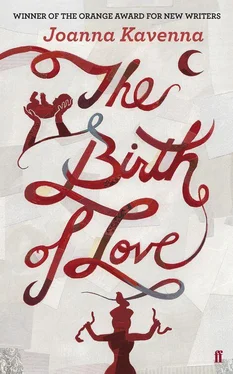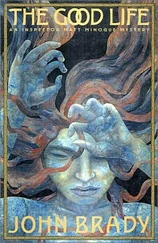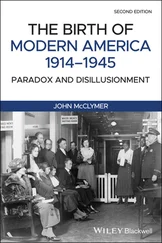*
Prisoner 730004 says again, ‘There was no son.’
She bows her head. Within her bitterness and all her fear, there is something else, something like hope, fragile and perilous, but fluttering within her.
*
Brigid is being wheeled along a corridor, confused and prostrate. Lights pass above her, and she closes her eyes. Patrick has disappeared, she doesn’t know where. They said he would come back soon. When she turned her head wildly, and asked where he was, they said she mustn’t worry. ‘You just lie back and everything will be taken care of,’ someone said, though she couldn’t see them. Now they are turning a corner, the doctor is hurrying past her. A nurse is at her side, saying, ‘It’s fine, dear, we’re almost there,’ and they are moving down another corridor — all these closed doors, thinks Brigid, and each door represents a mother in pain, birthing a new life — and then they are at the entrance.
*
‘Here is the theatre,’ says the nurse. ‘We’ll get you in and get you ready. There’s nothing to worry about.’ The doors swing open, and all Brigid can see is a new glare, a still more intense and burning light. It is going to happen here, in this over-lit white room — she can hardly see what is in there; she is screwing up her eyes against the light.
*
When Michael arrives, Sally Blanchefleur is standing outside the studio. He sees her before she notices him, and though she is angular and beautiful, tapping a long finger on her phone, he feels sorry for her, that she will have to make excuses for him once again.
‘I was so worried, Michael, I thought you’d never arrive,’ she says, quite sternly, and he knows he must be plain.
‘I am so sorry,’ he says. ‘It is my mother. My mother is unwell. I have to go to her now. I cannot speak on the radio.’
She is staring at him in disbelief, now, her hand to her cheek. He sees her eyes, thinks there is pity in them, but anger too. ‘Sally, I am sorry to have caused you so much trouble.’
‘Michael, it is not that. Your mother, you say. I thought you never …’
‘I will write to the producer myself. Say how very sorry I am, about it all. I know that doesn’t really help …’
‘They will understand. If only you’d told me — how long have you known?’
‘Not long.’
*
He knows he has wasted her time. And she had come out to support him. ‘Sally …’ he says. But she puts her hand on his arm, strokes his sweaty shirt. She says, ‘Michael, it really doesn’t matter.’ Though he has been a fool, he thinks, perhaps she has understood him anyway. He nods to acknowledge it, flushed and almost elated. ‘Call me when you can,’ whispers Sally, and turns away.
*
He sees that the sun is shining, that the day is fine and bright. The sky is a perfect brilliant blue.
*
Robert von Lucius stands in the sunshine thinking that it is a fine day — the richness of the light, a gentle breeze unfurling along the street — and he wonders what he should do with this fine day, marred so entirely by the news he bears. The guilt he must endure. He stands in the square with the cathedral clock chiming above his head. The noise of people all around him, and the ordinary clattering of horses’ hooves on the cobbles. Something terrible has occurred, he thinks. And no one will acknowledge it.
*
Under the clock, Robert von Lucius thinks it is necessary to do something to repair the reputation of this man, as he failed so abjectly to help him when he lived. He was too hesitant, and now he has missed the chance to save a life. Yet something remains. The work is not lost. It is perfectly necessary, thinks von Lucius, with the breeze on his face, that I prove the theory of Professor Semmelweis, if I can. That I disseminate it more widely. For someone must believe it, he thinks. There will be someone who understands.
*
Patrick has come back, dressed in a surgical gown, and Brigid cannot look at him, because she is so afraid. He is like a figure seen in a nightmare; at one level familiar but troubling in his strange clothes. He holds her hand, standing beside her. He says, ‘Are you OK? Brigid are you OK?’ But she cannot speak to him. The doctor says, ‘There will be an incision and then you may feel a tugging sensation. Everything will happen very quickly. The baby will be taken out and then he or she will be checked and warmed up a bit. Then you will be able to see your child.’
‘Can Patrick hold the baby, until I can?’ says Brigid. With the doctor she is trying to sound businesslike. She suppresses her fear and it is only when she feels Patrick’s hand upon hers that she wants to beg them to change everything, to do something else.
‘Of course he can. We’ll just have a quick check, and then the baby will be handed over to its father,’ says the doctor.
‘Don’t tell me what is happening as you go along,’ says Brigid. ‘I don’t want to think about it.’
She doesn’t want to see the knife. Her skin, torn apart. She doesn’t want to see them ripping through her flesh.
But Patrick, standing with a clear view of the naked body of his wife, sees it all. He sees the doctor holding the blade. With a practised movement of his hands, he presses it to the skin. The great belly is to be punctured, thinks Patrick. The knife sinks in, and blood begins to flow.
*
Michael has the money ready before the cab stops; as soon as he is out he starts to run. He thumps his feet upon the paving slabs, hears bells tolling in the distance. He feels free, now, as if he has been released from diffidence. He has not run this fast for years. At the station he rushes to buy a ticket, slaps money into the hand of a person he doesn’t see. Everything is blurred around him, until he focuses on the train he must catch — it is not far from him, though the clock says it is about to leave. So he runs again, stalled by metal barriers, scuffling from side to side, and then he hurries up the steps to the door and turns the handle.
*
The door does not open. He twists the handle again, hammers on the glass. ‘Let me in,’ he says. ‘Please can you open the door?’
He hammers still — he does not understand why the door will not open. Then he hears a whistle, and someone is saying, ‘The train is about to leave, step down sir.’ He turns towards the voice, says, ‘Can you not open it?’ Hammering still on the glass. ‘Please. You must open the door …’
There is a pause, then Michael hears a sigh of frustration, and the guard hurriedly twists a key in the lock, pushes him onto the train.
‘It’s your lucky day, sir,’ he grunts, and slams the door behind him.
*
A few people look up as Michael walks through the carriage. Perhaps they heard the commotion at the door. They look him up and down briefly, then turn back to their phones and papers. Staring out of the window at the receding girders of the station, Michael tries to catch his breath. He feels glad, simply because he made the train. Though he is breathing heavily, though his heart is pounding in his breast, he smiles to himself. He looks down at the moulded plastic of his tray table, thinks that he should get a coffee, something to eat. He has a couple of hours to kill, and then he will see her. James will be surprised that he has come so soon. His mother will be in her room, frail and wild-eyed, unkempt, half-mad with age.
*
He wonders what happened on the radio, how they explained his absence. It was fairly certain his book was going to dive anyway. It was falling like a wounded bird; the descent was making him ill. He thinks of how he spent his launch hiding in that conservatory, because the swiftness of the descent was giving him vertigo. Perhaps it was nothing more than that: a sort of dizziness, caused by the gulf between his dreams and the reality around him. His expectations, popping like balloons as he descended. Still they had been kind, they’d tried to cushion his crash landing. Sally especially — he must do something to make it up to Sally. He’s feeling sick and slightly faint, but it must be the effects of that spiralling sense of vertigo. He has fled from the scene of his embarrassment, he’s getting further away with each minute.
Читать дальше












